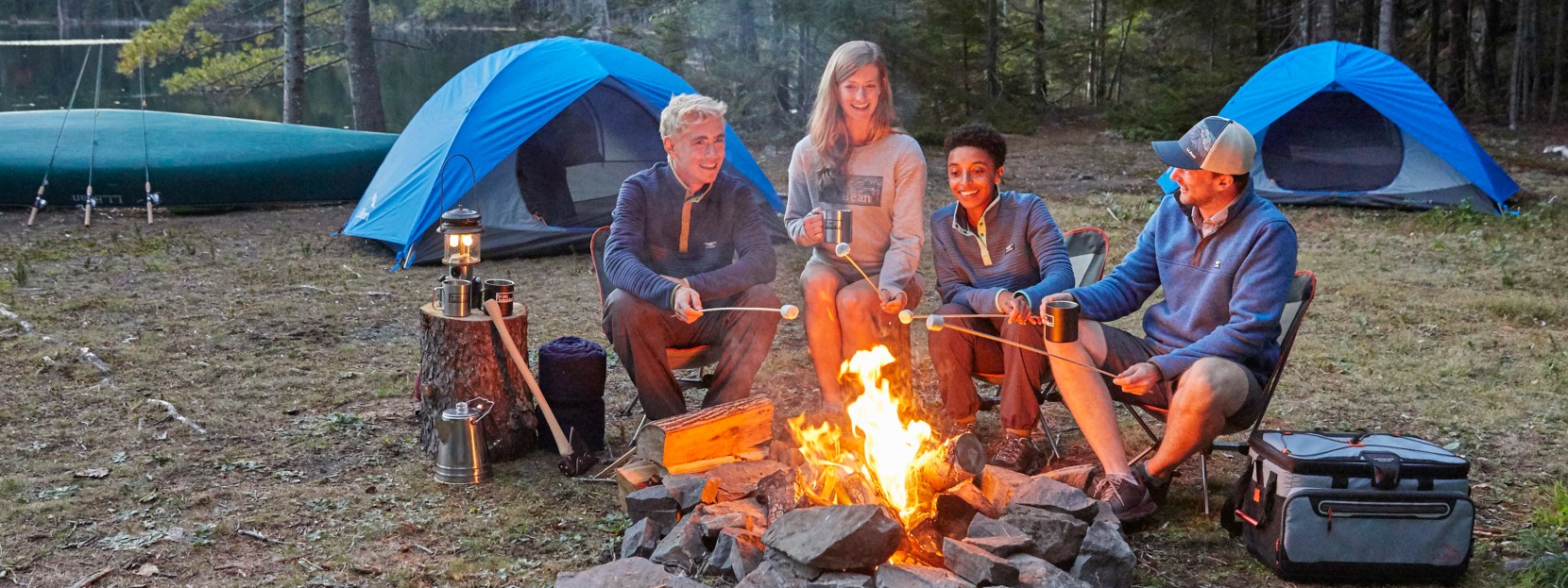
Stay Local and Stay Small
One way to significantly reduce your risk of encountering (or spreading) a virus is by staying close to home. When planning your camping trip, look for options in your own state – see it as an opportunity to explore those areas nearby that you’ve put to the wayside for other far-flung trips. When you pick a spot, keep your camping party small – family members, housemates or a few healthy friends who you trust to practice social distancing during your campout.
Wilderness Camping
Many campgrounds offer hike-in campsites that are even farther removed from crowds – if you feel comfortable in a site that’s a little more remote, this is a great way to find a little more solitude.
Check Conditions and Local Guidelines
The Centers for Disease Control has the latest information about when and where it’s safe to travel, and when it’s time to hunker down at home – always check the conditions at both your destination and home before heading out with your camping gear. The CDC has some great guidelines to keep in mind wherever you go, but be sure to check local state guidelines as well; and while you’re at it, check with the campground to see if they have any specific guidelines, too.
Camping at Home
Of course, one way to avoid travel completely is to set up a campsite in your living room or your own backyard. This type of free, low-impact camping is the perfect way to get a taste of the outdoors while enjoying all the comforts of home.
Bring Lots of Soap and Water
One of the primary ways to keep yourself safe from disease is to wash your hands with soap and water often, for at least 20 seconds every time. You can avoid the increased chance of contact with the virus in public restrooms by bringing plenty of your own soap and water – just make sure to bring biodegradable camp soap if you’re going to be washing up at your campsite.
Have a Mask Handy
Evidence shows that wearing a mask reduces the spread of the virus, so it’s a good idea to have one with you, even if you don’t have to wear it. You might go somewhere that masks are required, find yourself in a large group of people, or just feel more comfortable having one on – so stash one in your pack or around your wrist, just in case. It doesn’t just keep you safe; it helps keep others safe as well.
Campsite Activities
If you really want to avoid public spaces, there’s plenty to do right at the campsite. Catch up on reading, work on arts and crafts, or play a game around the tent or around the campfire.
Prepare Safe Meals Ahead of Time
If you’re really looking to get away from crowds during your camping trip, that means avoiding restaurants and grocery stores when mealtime rolls around. Luckily, cooking over the camp stove and enjoying meals in front of the fire are some of the best parts of camping! Before leaving home, plan out the meals (and snacks) for your trip, and prepare as much as you can ahead of time. Not only will that mean less work at the campsite – it also means you can be 100% sure that your meals and kitchen gear are as clean around the camp table as they were when you left home.

QUICK TIP:
You can avoid a lot of extra touching at the campsite by removing food from packaging and combining it at home. Ingredients that are all going in a pan together? Toss them in a single container! Eggs that will need to be cracked? Crack them into a water bottle so they’re ready to go!


